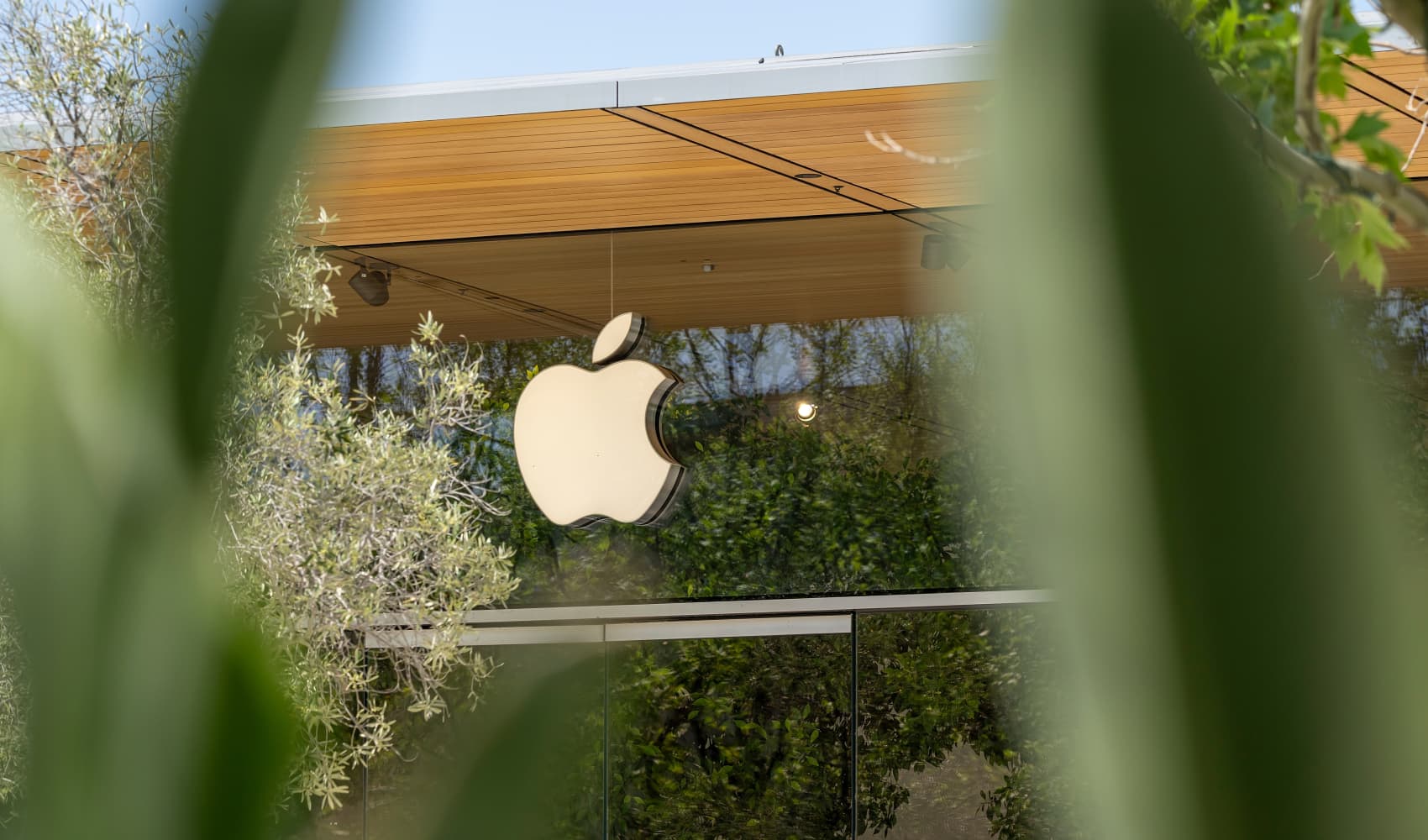Spotify Wins! Apple Allows In-App Purchases: What it Means
Apple Caves! Spotify Update Cleared: In-App Purchases are Here!
Introduction: A New Dawn for App Store Freedom?
Hold on to your headphones, music lovers! It looks like the battle between Apple and Spotify is finally starting to shift. Apple has approved Spotify's latest app update in the U.S., allowing users to access pricing information and, more importantly, links to make purchases directly within the app! This is huge. Why? Because for years, Apple has maintained a tight grip on in-app purchases, requiring developers to use their payment system and pay a hefty commission. But is this a sign of real change, or just a temporary truce?
The Court's Decision: A Turning Point
What sparked this dramatic change? Well, a U.S. federal judge issued an order on Wednesday, forcing Apple to stop imposing commissions on purchases made through web links inside iPhone apps. This ruling struck at the heart of Apple's App Store revenue model, challenging their control over how users pay for digital content.
Spotify's Swift Action
Seeing the opportunity, Spotify didn't waste any time. They immediately submitted a new app update on Thursday, ready to take advantage of the court's decision. And now, just a day later, it's approved!
What This Means for You: More Choices, Potentially Lower Prices
So, what does this mean for you, the user? Get ready for a potentially better experience!
- More Payment Options: You'll likely have more ways to pay for your Spotify subscription, potentially bypassing Apple's payment system altogether.
- Pricing Transparency: You'll be able to see all the pricing options clearly displayed within the app. No more hidden costs or roundabout ways to find the best deal.
- Potentially Lower Prices: Competition is good! If Spotify can avoid Apple's commission, they might pass those savings on to you. Fingers crossed!
Apple's Response: Compliance with a Side of Disagreement
While Apple has stated they will comply with the court's order, they also made it clear that they strongly disagree with the decision and plan to appeal. "We will comply, but we're not happy about it" seems to be the general sentiment. This suggests that the fight isn't over yet, and we might see more legal battles in the future.
The Commission Conundrum: Why Apple Charges a Fee
Why is Apple so attached to these commissions? They argue that the fees are necessary to maintain the App Store's security, quality, and ecosystem. They claim the money helps fund app reviews, security updates, and the overall infrastructure that makes the App Store work.
Spotify's Perspective: A Fairer Playing Field
Spotify, on the other hand, has long argued that Apple's commissions are anti-competitive and create an unfair playing field. They believe that Apple is using its dominance in the mobile market to unfairly profit from other companies' success.
The Impact on Other App Developers: A Ripple Effect?
This ruling could have a significant impact on other app developers as well. If Apple is forced to allow external payment options for Spotify, other companies will likely demand the same treatment. Imagine Netflix, Hulu, or even your favorite game developers being able to offer subscriptions and in-app purchases without paying Apple's commission.
The Future of the App Store
The long-term effects are still uncertain, but this could signal a fundamental shift in how the App Store operates. Will Apple be forced to loosen its grip on in-app purchases? Will we see more competition and innovation in the app market? Only time will tell.
The User Experience: Smoother, Simpler Subscriptions?
Let's be honest, subscribing to a service through the App Store can sometimes be a clunky experience. Having to navigate through Apple's settings to manage subscriptions isn't always intuitive. With Spotify's update, subscribing could become much simpler and more streamlined, similar to subscribing directly through their website.
The Antitrust Angle: A Growing Concern
This situation highlights the growing antitrust concerns surrounding big tech companies like Apple. Regulators and lawmakers around the world are scrutinizing Apple's App Store practices, questioning whether they stifle competition and harm consumers.
Legislative Action
We may see legislative action in the future to address these concerns. Some lawmakers are pushing for laws that would require app stores to allow developers to use their own payment systems.
The Potential Drawbacks: Security Concerns?
While increased competition and lower prices are appealing, there are potential drawbacks to consider. If Apple loses control over in-app payments, there might be concerns about security and fraud. Apple argues that its payment system provides a layer of protection for users, and bypassing it could expose them to risks.
Apple's Appeal: The Battle Continues
As mentioned earlier, Apple plans to appeal the court's decision, meaning the legal battle is far from over. The appeals process could take months or even years, and the outcome is uncertain.
What to Expect Next
In the meantime, expect Apple to continue to defend its App Store policies and argue for the necessity of its commission structure.
The Consumer Wins (For Now): A Moment of Celebration
For now, consumers can celebrate this victory. The ability to choose payment options and potentially save money is a win-win situation. This feels like a tiny crack in the wall of Apple's garden; maybe the wall will come down someday. But even if the wall remains, a crack can still let in a little sunshine!
Beyond Spotify: The Broader Implications
It's important to remember that this isn't just about Spotify. It's about the future of the app economy and the power dynamics between app developers and platform owners. This decision could set a precedent for other companies to challenge Apple's App Store policies, leading to a more open and competitive market.
The Digital Landscape: A Constant Evolution
The digital landscape is constantly evolving, and this situation is a perfect example of the challenges and opportunities that arise as technology advances. Regulations and laws are struggling to keep up with the pace of innovation, and it's crucial to have a thoughtful discussion about the role of big tech companies in our society.
Conclusion: A New Era for the App Store?
The approval of Spotify's app update marks a significant moment in the ongoing battle between app developers and Apple. While Apple plans to appeal, this decision could pave the way for a more open and competitive App Store ecosystem. Consumers stand to benefit from increased choice, potentially lower prices, and a smoother user experience. Whether this is a temporary victory or the beginning of a long-term shift remains to be seen, but one thing is clear: the future of the App Store is up for grabs.
Frequently Asked Questions (FAQs)
- What exactly does this Spotify update allow?
The update allows Spotify users in the U.S. to see pricing information and access links within the app to make purchases, potentially bypassing Apple's payment system and its associated commissions. This means more payment options may become available.
- Will Spotify subscriptions become cheaper because of this?
Potentially! While Spotify hasn't explicitly stated that prices will decrease, the ability to avoid Apple's commission could allow them to offer lower prices to users who subscribe through alternative payment methods. This depends on Spotify's business decisions.
- Is this update available worldwide?
No, currently, this update is only available for Spotify users in the United States. It is a response to a U.S. court order against Apple.
- Does this mean all apps on the App Store will now allow alternative payment options?
Not necessarily. Apple is appealing the court's decision, and the outcome is uncertain. However, this ruling could set a precedent for other developers to demand similar treatment. Legislative action could also influence future App Store policies.
- Is it safe to use payment options outside of Apple's App Store?
While bypassing Apple's payment system may offer benefits, it's important to be cautious. Ensure that you are using a reputable payment provider and that Spotify has implemented appropriate security measures to protect your financial information. Always double-check website addresses and be wary of phishing attempts.

